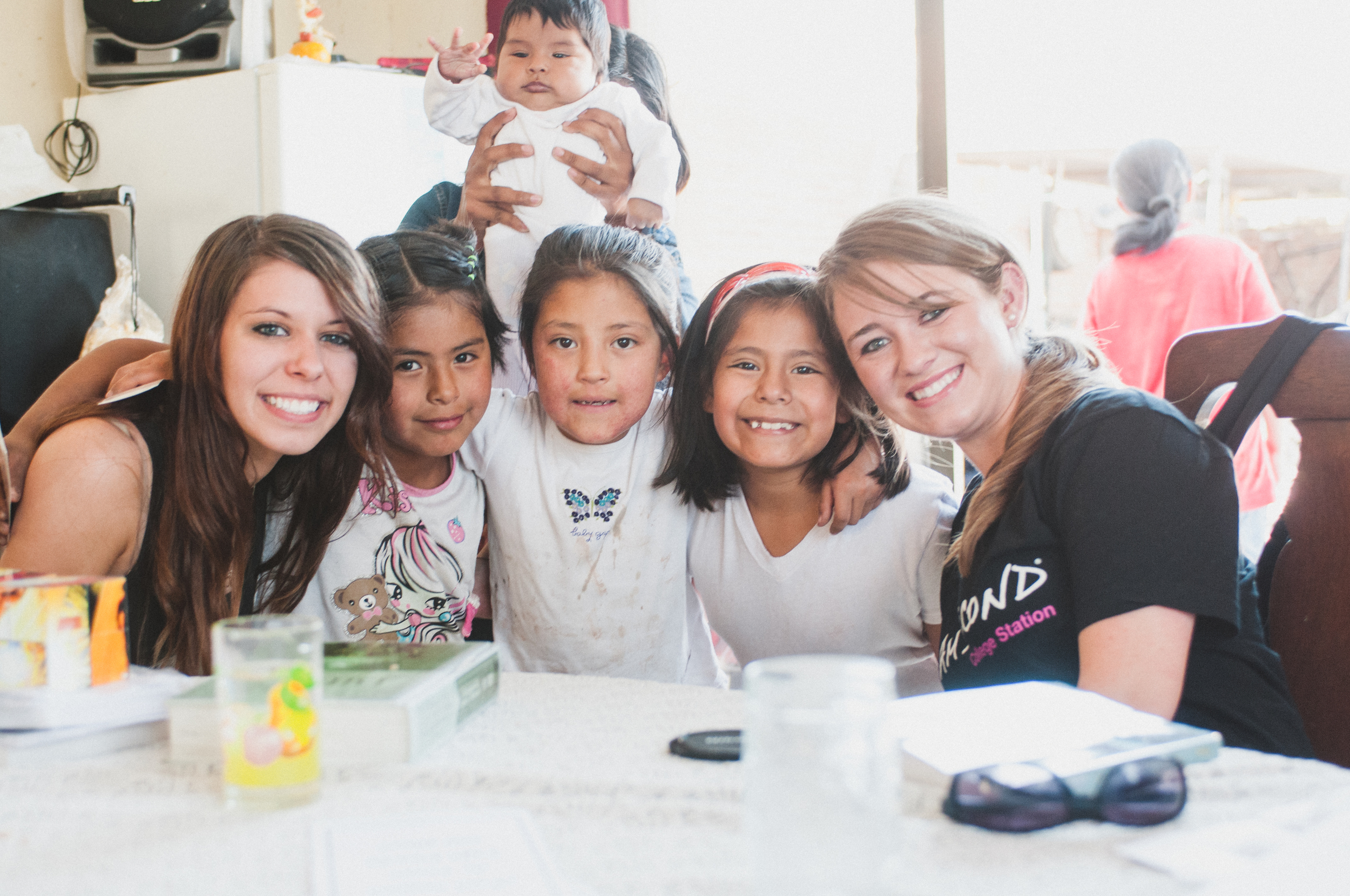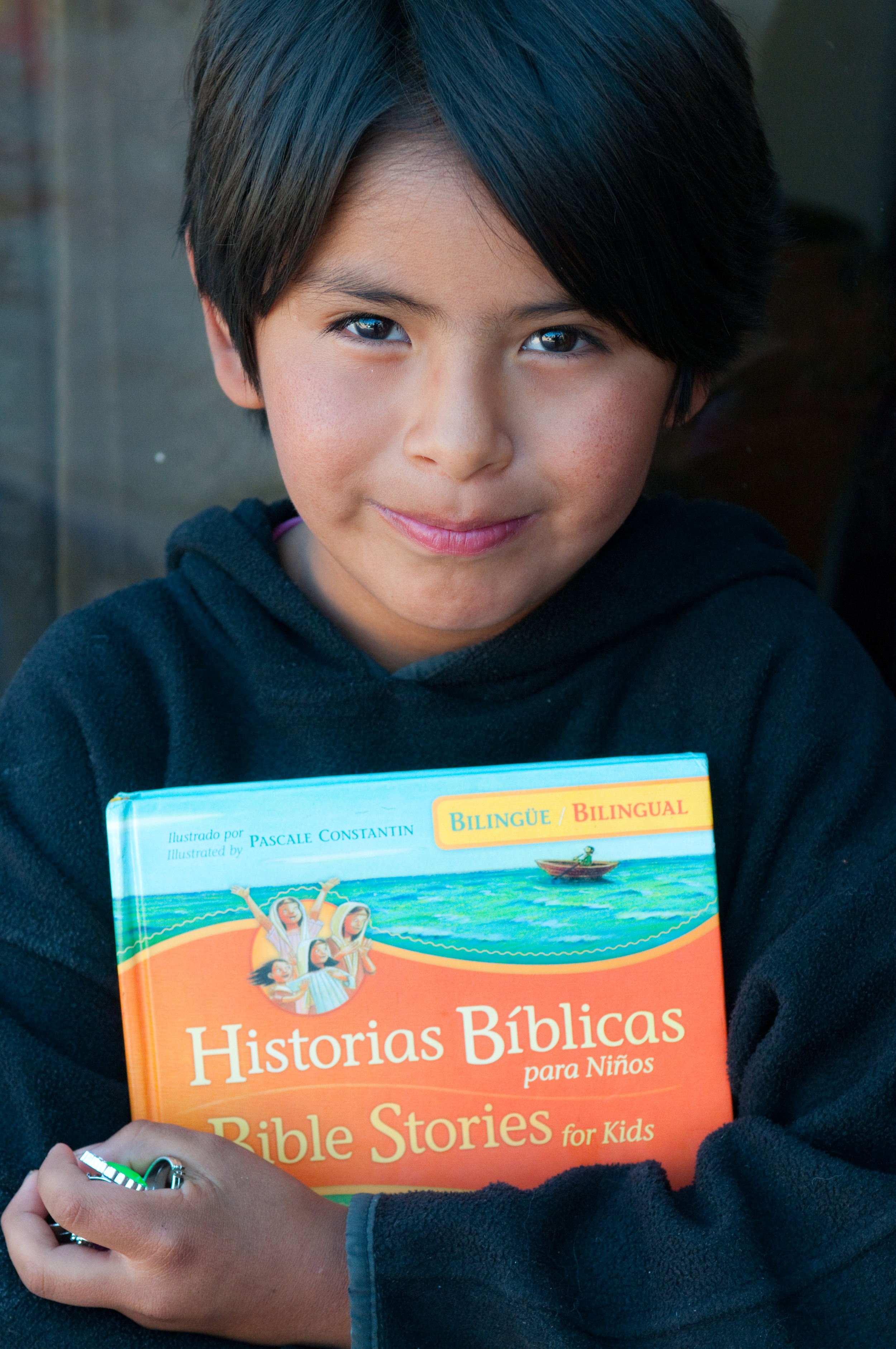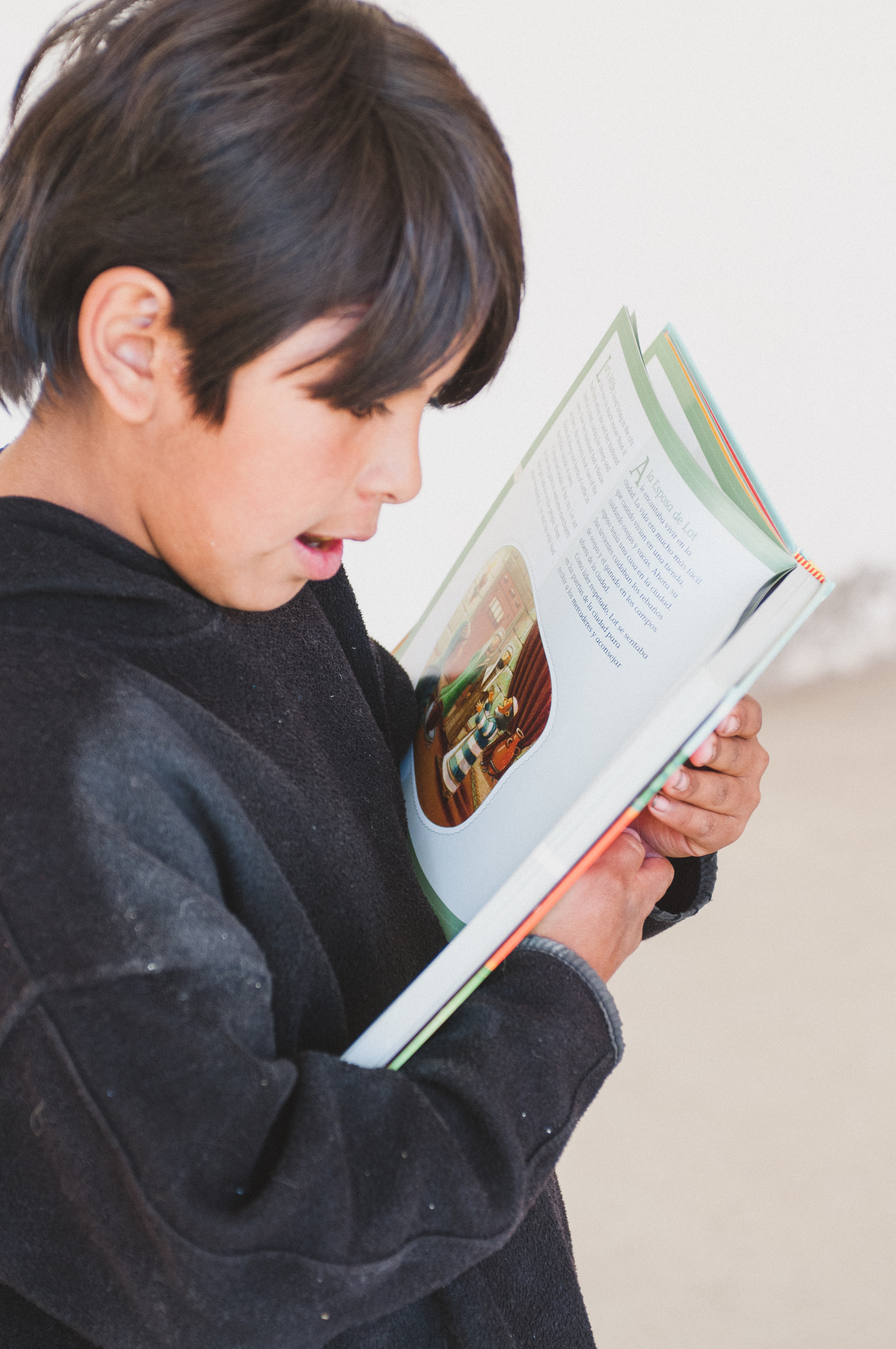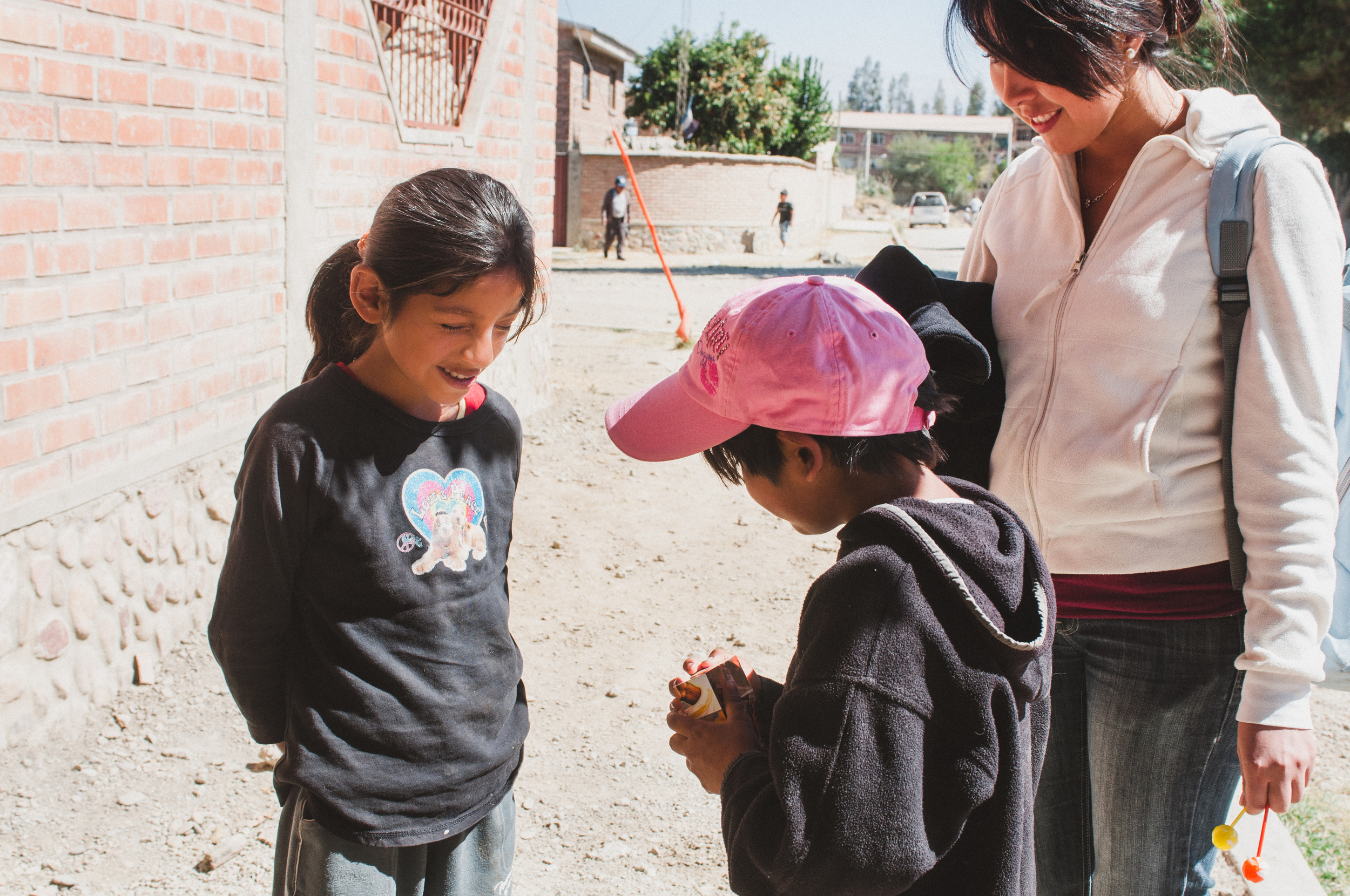After forty-eight hours of flying, layovers, and an overnight stay in Santa Cruz, we finally made it. The seat belt lights went off. We landed in Cochabamba, Bolivia. I looked around me. My mind felt frozen. I had the jitters and I already dreaded the day I would have to leave. These were my first few moments in a developing country.
We loaded the bus and drove out to our hotel. I hurried to a window seat, pulled out my camera and captured everything I saw. I never thought the air back home seemed polluted, but when I smelled the Cochabamba air, it was freshness unlike anything I had smelled before. We weaved around cars on the dirt roads. Stands with umbrellas cluttered the sides of the streets selling fresh fruit, vegetables, and meat on sticks. Everything seemed so new and so fresh, yet so fitting. It was a whole other world to me, but at the same time it felt so familiar and so much like a new home.
The main roads in the city seemed chaotic like all cities. But when we drove out to our village, everything slowed down. Men herded their cattle through the streets. Boys strolled along on bikes. Women and children worked their village’s convenient-like stores selling bags of water, sodas, and candy. We pulled into the drive away of the home of one of the families we would be working with.
We gathered every morning with the men, women, and their children. I had never seen such eagerness, energy, and excitement to start a church in a village. The energy was contagious. I felt it not just among the adults, but among the kids too, especially my dear friend, eight-year-old Jasmin.
Each afternoon, our teams would meet back at one of the families’ homes to share stories over hot cups of green tea and pastry breads. After we finished our meals, Jasmin and her friends would pull Kendall and me down to the floor. Sitting Indian style, we gathered around with the girls as they taught us Spanish and giggled at our attempts. Kendall brought with her a bilingual Bible stories book. The girls loved it. They would press their fingers to the pages, read the Spanish words, and make us repeat after them. On the last day in the village, Jasmin’s mom let her accompany us on our last visit walk around. Those next few hours play in my mind like a old timey movie reel. So vivid. I could never forget what would happen.
Jasmin led the way. She took me by the hand and guided me and my interpreter, Sindy out to her friend’s house. Once we reached the door, Jasmin knocked and shouted over the wall, asking her friend to come outside. Normally I would talk with the families and share the Gospel story, but this time I took a backseat role and watched Jasmin do her thing. This little eight-year-old friend inspired me. Jasmin began telling her friend about Jesus. Sindy stood by her side to help her with any details she might forget. As the minutes passed, I saw Jasmin and her friend bowing their heads and closing their eyes fiercely tight. Her friend wanted to give her life to Jesus. Sindy stepped back. With a big grin, trying to contain her excitement in a whisper, Sindy told me what happened. Jasmin and her friend turned to us and smiled so big. We all just looked around at each other and laughed.
There was no other way I could imagine ending our time in the village. We headed back to the house, so Sindy and I could catch my taxi back to the airport. I realized that day, some of the most difficult experiences happen for some of the best reasons. As we all hugged and shared stories of God’s work in the village. Jasmin stood near the back waiting to see me. She came up to me, wrapped her arms tight around my waist, and we cried. She handed me the best gift I have ever received, a framed photo of herself. I didn’t know what to say. I had no words. My sweet friend opened my eyes to so much. Her energy and excitement for Jesus revived my life, just like that Cochabamba air.




